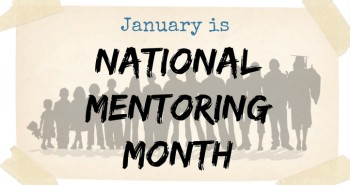Guest Column: #connection: Expanding Our Social Capital
Posted in 2017 Wednesday, 25 January 2017

By Ethan Smith, MA, Mentoring Specialist at Save Our Youth.
The Executive Director of Save Our Youth often says kids are a product of who they are connected to and who they are disconnected from. What a sobering thought, especially as we see increasing numbers of kids with few, shallow, or antagonistic relationships with their communities, schools, and even families. Instead, digital media and smart technology have introduced a world of supposedly unlimited connections, and kids today eagerly substitute online “socialization” for real relationships at unprecedented rates. This trend applies equally to the kids we serve around Denver, who are already considered at-risk because of the struggles their families, neighborhoods, and schools face.
Of course, kids merely reflect the isolation and lack of “social capital” that are widespread throughout the country. Political scientist and author Dr. Robert Putnam already observed back in 1995, “There is reason to believe that deep-seated technological trends are radically ‘privatizing’ or ‘individualizing’ our use of leisure time and thus disrupting many opportunities for social-capital formation.” (Putnam, 1995) We can readily observe that this trajectory has only accelerated in the past two decades – and greater emphasis on the individual with it. The results can be perilous, and kids’ need for mentors is perhaps greater today than when we opened our doors over twenty years ago.
Building connections between at-risk youth and healthy, caring adults is central to our mission, as we aim to foster their growth academically, spiritually, and emotionally. The work of mentoring is to develop youth who will flourish within their respective schools; to connect to sources of spiritual guidance in their communities; and to nurture positive relationships within their homes and neighborhoods. With the support of just one committed person, a mentor, we believe each mentee can move toward this end. Through his or her own tree of relationships, a mentor immediately increases the web of support around the mentee, multiplying the network to surround this isolated child.
Utilizing the Hemingway Measure of Adolescent Connectedness, Save Our Youth continually tracks the growth of program mentees. Its creator, Dr. Michael Karcher, notes the significance of this construct, “Connectedness may have both protective and risk-promoting properties depending on two [sic] whom or to what place the connectedness refers.” After all, relationships mediate the processes of developing new skills, acquiring knowledge, and developing into an adult. The type of person we become correlates significantly to – and perhaps even reflects – the connections in our lives.
Save Our Youth has positioned its approach to mentoring within the broader positive youth development (PYD) perspective, which emphasizes an individual’s strengths and assets. (Yes, even struggling families and neighborhoods have much to support and on which to build.) One of the core pillars of this orientation is connection, the nurturing of which prepares kids to thrive. Dr. Richard Lerner, a PYD pioneer, observes that programs like Save Our Youth, 1 p. 74, in Robert Putnam. (1995). Bowling Alone: America’s Declining Social Capital. Journal of Democracy, 6:1, 65-78. Putnam continues, “Television has made our communities (or, rather, what we experience as our communities) wider and shallower. In the language of economics, electronic technology enables individual tastes to be satisfied more fully, but at the cost of the positive social externalities associated with more primitive forms of entertainment.” “Offer young people the opportunity to capitalize on their potential for positive growth by providing the chance to gain life skills through having access to mentors who collaborate with young people and who enable them to participate in and lead valued community activities.”
Though all too familiar with the obstacles of poverty – financial, relational, or otherwise – and well versed in navigating social and justice systems, our families are resilient. Despite the isolation felt by many of the kids mentored by Save Our Youth, they demonstrate extraordinary capacity when (and even before) connected to an invested adult. Just one relationship can redirect each child’s path, not only preventing participation in high-risk or illegal activities but creating a world where the child can thrive.
Save Our Youth is a youth development organization providing at-risk youth with educational, emotional, and spiritual skills for success through long-term mentoring relationships.

